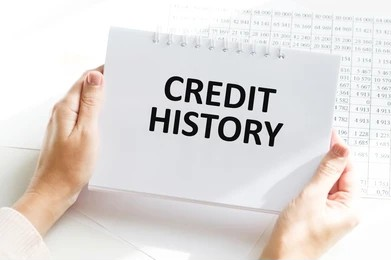The Role of Credit Education in Rebuilding Credit History: Why Knowledge Matters
Rebuilding your credit history is an essential step toward achieving financial stability. Whether you’re recovering from past financial setbacks or looking to improve your credit score, understanding the basics of credit is a critical starting point. Credit education plays a key role in helping individuals regain control over their finances and ensure long-term success in rebuilding credit history. This article will explore why knowledge matters, how it speeds up the process of credit repair, and why it’s crucial for achieving financial recovery.
Rebuilding Credit History Through Credit Education: A Key to Financial Recovery
Rebuilding credit history isn’t just about paying down debt—it involves understanding the various factors that impact your credit score and taking proactive steps to improve them. Credit education empowers individuals with the knowledge needed to make informed financial decisions. By learning about credit reports, scores, and the impact of various financial behaviors, you can address issues that are holding you back from achieving a better credit standing.
Credit education covers everything from how to manage credit cards responsibly, to understanding how late payments, high balances, and bankruptcies affect your score. With this knowledge, you’re better equipped to make the right decisions that will contribute to your overall credit recovery. Whether you’re working with a credit repair company or tackling the task independently, a solid foundation in credit education is essential to the process.
How Credit Education Can Help You Rebuild Your Credit History Faster
The process of rebuilding your credit history doesn’t have to be a slow and painful journey. With the right credit education, you can make strategic decisions that accelerate your recovery. Credit education helps you understand your credit report and score, giving you the tools needed to pinpoint areas that need improvement.
For instance, learning how to reduce credit utilization and make on-time payments consistently can drastically improve your score in a short period. Additionally, understanding how to dispute inaccuracies on your credit report or negotiating with creditors for better terms can save you time and effort, ultimately leading to faster credit repair. The more you know, the quicker you can put your knowledge into action, speeding up the recovery process.
Understanding Credit: The First Step to Rebuilding Credit History Successfully
The first step to rebuilding your credit history is understanding how credit works. Many people make the mistake of assuming that their credit score will improve on its own or that they need to tackle credit repair without any prior knowledge. But the truth is, without a clear understanding of the factors that affect your credit, it’s difficult to make real progress.
Credit education helps you understand key concepts such as:
- Credit Score: What it is, how it’s calculated, and why it’s important.
- Credit Reports: How to read and understand them, and what information can impact your score.
- Credit Utilization: The relationship between your credit limit and balance, and how to maintain it for optimal credit health.
- Late Payments and Defaults: Understanding how missed payments affect your credit and what steps to take to minimize damage.
By learning the ins and outs of credit, you can make informed decisions and put yourself in a stronger position to rebuild your credit history successfully.
Why Credit Education Is Essential for Rebuilding Credit History and Financial Stability
Without credit education, rebuilding your credit history can feel like a guessing game. However, with the right knowledge, you can develop a clear roadmap to financial recovery. Credit education enables you to recognize your mistakes, avoid repeating them, and ultimately rebuild your credit history in a way that leads to lasting financial stability.
Financial stability is not just about repairing your credit—it’s about understanding your financial behavior, setting goals, and managing your money wisely. Credit education helps you improve your relationship with money, so you can secure better interest rates, qualify for loans, and access opportunities that can lead to greater financial success.
Conclusion: Take Action with Credit Education to Rebuild Your Credit History
Rebuilding credit history is a process that requires patience, strategy, and a solid understanding of how credit works. By investing in credit education, you gain the knowledge needed to make smarter financial decisions and accelerate your path to financial recovery. Whether you’re learning how to manage your credit or seeking assistance from a credit repair service, credit education is the foundation of a successful credit rebuilding strategy.
If you’re ready to take control of your credit history and begin your journey toward financial stability, we’re here to help! At Cents savvy, we offer expert credit repair and tax resolution services designed to help you rebuild your credit history faster and more effectively.
For more information, please visit Cent Savvy Credit Repair Counseling

